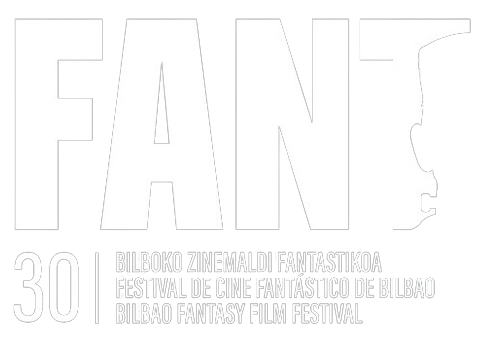Awards

CÉLINE ROUZET
French filmmaker. For more than ten years, she visited many times Papua New Guinea where she produced audio documentaries for Radio France and reported stories for various newspapers before directing the feature-length documentary A Distant Thud in the Jungle in 2020. She also studied screenwriting at La Fémis and attended the Emergence Directing Residency. For Night Will Come is her debut fiction feature film.
EN ATTENDANT LA NUIT
The Feral family moves to a new neighbourhood with the intention of leaving their past behind and trying to go unnoticed. However, the youngest of the family is not a normal teenager: when he becomes intimate with his new neighbour, his thirst for blood grows and their differences become impossible to ignore.

LAMBERTO BAVA
Italian film director, born in Rome in 1944, recognized for his distinctive contribution to the horror genre, the thriller and the fantastic genre, in general. Coming from a prominent film family, he is the son of legendary director Mario Bava, Lamberto inherited a love for cinema from a young age.
Lamberto’s film career began in the mid-1960s working as an assistant director on his father’s film Planet of the Vampires (1965). Lamberto would later collaborate with his father on several of his projects, including Shock (1977), where he was credited as a screenwriter as well as an assistant director. He directed his own first feature film Macabre in 1980. Later films like A Blade in the Dark (1983), Monster Shark (1984), Delirium (1987), Body Puzzle (1992) or the Fantaghirò series. would come.
Throughout his career, Bava has left a unique mark with his visual style and his ability to create terrifyingly haunting and terribly tense atmospheres. Films like Demons (1985) and Demons 2 (1986), written in collaboration with Dario Argento, have become classics of Italian horror cinema, standing out for their daring visual aesthetics and powerful storytelling. With his hallmarks and his particular focus and passion for the art of cinema, Bava has influenced subsequent generations of filmmakers and has left a lasting legacy in the world of genre cinema.

JAVIER BOTET
Javier Botet is an actor who has shown his multifaceted ability to give life to memorable characters, becoming one of the most characteristic faces of the horror genre in recent years.
Born in Ciudad Real in 1977, he studied Fine Arts in Granada. In 2005, Brian Yuzan offered him his first acting opportunity in Beneath Still Waters. Later came the role of the ‘Medeiros girl’ in [REC] (2007), and her interpretation of the terrifying mother in Mama (2013), which would become references within the horror genre.
Since then, he has participated in films such as Magical Girl (2014), Crimson Peak (2015), The Revenant (2015), The Conjuring 2 (2016), Alien: Covenant (2017), The Invisible Guardian (2017), The Mummy (2017), It (2017), Insidious: The Last Key (2018), Slender Man (2018) and The Last Voyage of the Demeter (2023), among many others.
He has worked with Paco Plaza, Jaume Balagueró, Guillermo del Toro, Alejandro González Iñárritu, Álex de la Iglesia, Carlos Vermut and Ridley Scott.
He has also participated in successful television series such as The Boarding School, Águila Roja, Star Trek: Discovery, The Gypsy Bride, Game of Thrones or 30 Coins.

PEDRO OLEA
Born in Bilbao, Pedro Olea began studying Economics although his passion for cinema led him to move to Madrid to study at the Official Film School (E.O.C.).
In Madrid he combined his studies with writing film reviews for the magazine “Nuestro Cine”. After graduating with the short film Anabel, he began to take his first steps into filmaking, alternating work on television with his first film productions. In 1967 he released his first feature film, Días de viejo color, with which he won the award for best director of a debut film from the Circle of Cinematographic Writers.
He got the first success of his career with his third feature film The Ancines Woods (1970). This feature film got many awards such as the Critics’ Award at the Chicago International Festival, the Fotogramas de Plata Award in 1971 and the San Jorge Award in 1972.
Starting in 1974, he began a fruitful professional relationship with producer José Frade and he shot with his production company such interesting proposals as Pim, pam, pum… Fire! (1975), or A Man Called Autumn Flower (1978).
In 1979 he moved back to Bilbao and filmed the short Gernika from the Ikuska series. In 1983 he directed Akelarre, one of the best-known films of Basque cinema in the eighties. In 1985 he made a short documentary, entitled Bihotzez, about the floods suffered by Bilbao in 1983. In 1988 Olea decided to leave Euskadi and return to Madrid.
In the nineties he established himself in the Spanish film industry by filming films such as El día que nací yo (1991), The Fencing Master (1992), winner of three Goya awards, Zafarinas (1995) and Beyond the Garden (1996). Since 2000, the filmmaker alternates his usual work as director with that of producer.
